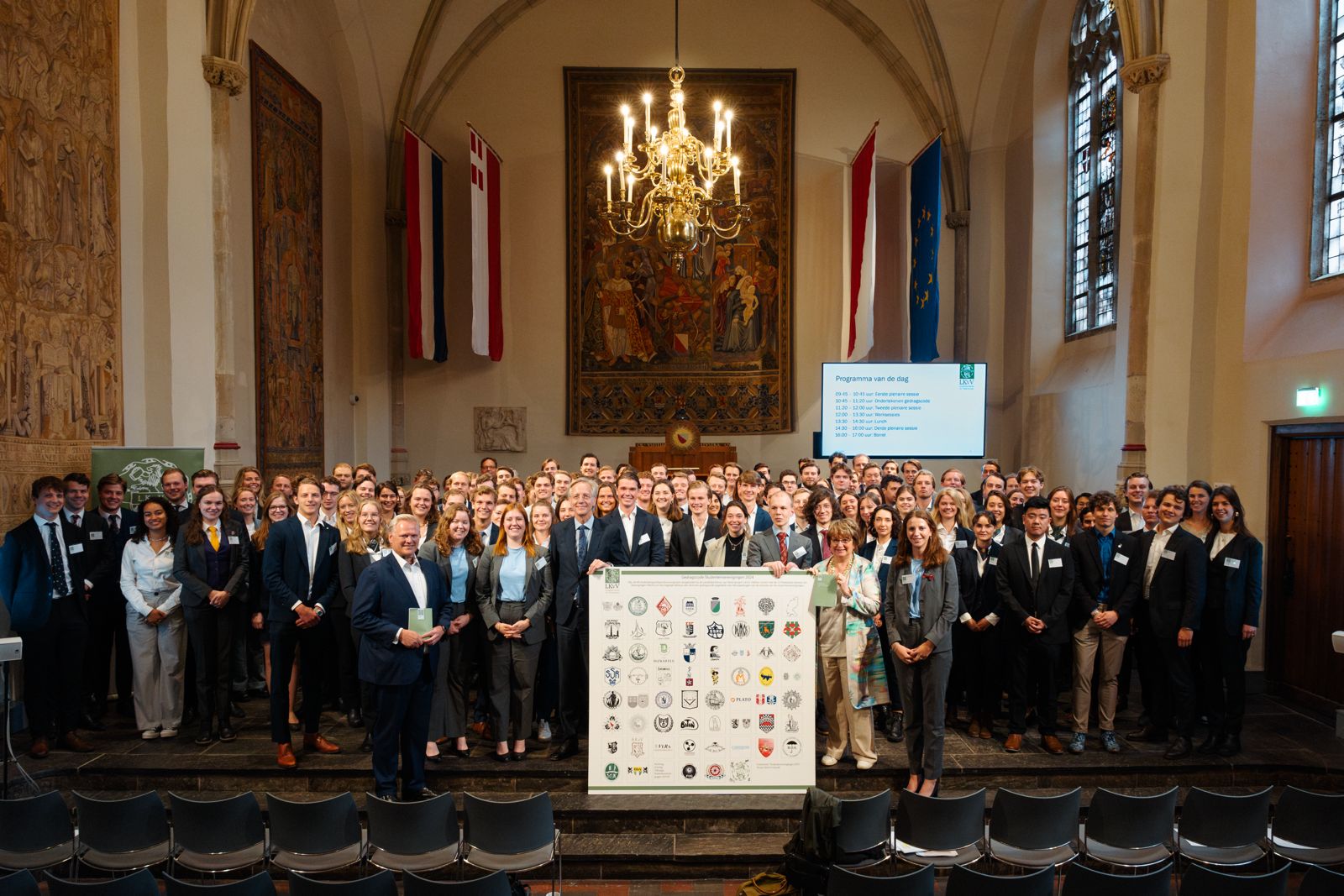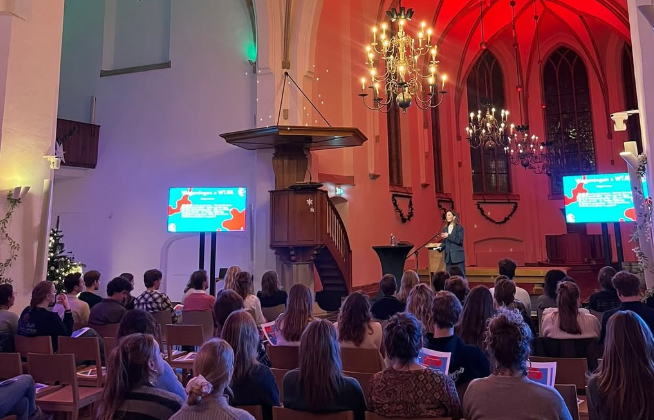The code was drafted by the National Chamber of Association (Dutch acronym LKvV), a collective of student associations across the Netherlands. The document aims to combat (sexually) transgressive behaviour, extreme substance abuse and aggression. At the same time, the code is to protect the uniqueness of the Dutch culture of associations, says Christel Konings of the Wageningen Chamber of Associations (WKvV). ‘But in a manner that ensures the safety of all involved.’
The code was signed by participating representatives in the Academie building in Utrecht on 18 June. Outgoing Minister of Education Robbert Dijkgraaf and Government Commissioner for Sexually Transgressive Behaviour Mariëtte Hamer were present at the signing ceremony. Wageningen associations SSR-W, KSV Franciscus, WSV Ceres and Nji-Sri were among the associations that ratified the code.
‘The code comprises agreements on sexually transgressive behaviour and the use of substances, but also on the wellbeing of members and sustainability’, Konings clarifies. ‘Working groups made up of members of associations throughout the Netherlands have collaborated to detail topics such as aggression. Four Wageningen members were among those who contributed.’
The document, available for perusal on the LKvV website, states that every association must have a confidential counsellor for sexually transgressive behaviour and aggression. Moreover, drug abuse must be actively discouraged, and a zero-tolerance policy applies to the use of hard drugs.
Join forces
The Wageningen clubs that are part of the WKvV already had their own codes of conduct, says Konings. ‘Scandals such as those in Amsterdam, Utrecht or Groningen do not occur here. The Wageningen associations uphold excellent working relations with the municipality and the university on issues such as wellbeing, and the vast majority of the associations in Wageningen have a sustainability commission, offer alcohol-free beer and so forth. We must jointly contribute to the cultural shift that is currently underway. Hence, the fact that we have reached this agreement with associations from across the Netherlands is an important sign. We jointly agreed, and now it is time to jointly follow up.
First-year students need not fear hazing when they join an association
One item in the agreement stands out: associations may no longer impose a non-disclosure agreement on their members with regard to their introductory period. Historically, many associations forbade their members to discuss the goings-on during their introduction or hazing. Konings: ‘We are moving towards a more open culture in student clubs. First-year students need not fear hazing when they join an association. There is no need for major changes in Wageningen, because we are already pioneers of this new culture.’
Enforcement
Associations such as Vindicat in Groningen, the Utrechtsch Studenten Corps and the Amsterdamsch Studenten Corps also ratified the code. These associations regularly made headlines in recent years due to transgressive behaviour, Banga-lists, and violence. Hence, the question is how the code will be enforced. ‘What happened there has no part in association life’, Konings states. ‘Such behaviour must be punished; it is up to the associations to determine what punishments they impose. This is a code of conduct, not a legal document.’
It is up to the associations to determine what punishments they impose. This is a code of conduct, not a legal document
Still, Konings does not see the code as a paper tiger. ‘It is a joint document containing joint agreements and goals formulated by the associations themselves. Should something occur at the association of which you are a member, you can remind the association that they signed this document. Moreover, other associations and the LKvV can call out such offending clubs to follow the agreement they signed.’

 The code of conduct was signed in the Utrecht University Academy building in the presence of outgoing minister Dijkgraaf and government commissioner Hamer. Photo LKvV
The code of conduct was signed in the Utrecht University Academy building in the presence of outgoing minister Dijkgraaf and government commissioner Hamer. Photo LKvV 

